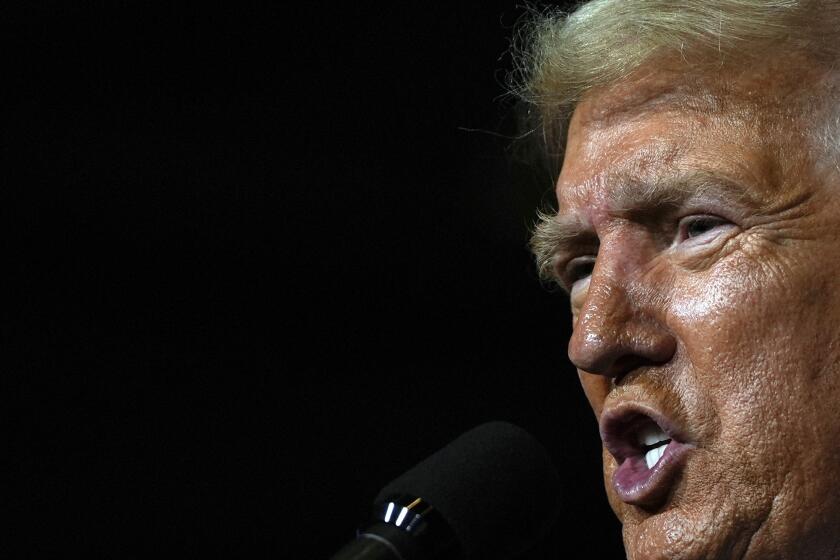Politics and Science Do Mix
In recent years, science policy has received about as much national attention as bridge-abutment engineering, but suddenly science policy is on the talk shows and in the news. The Union of Concerned Scientists just accused the George W. Bush administration of deliberate “misuse” of science; pundits and some Democrats are citing the report as proof of presidential malfeasance. A few days ago, Bush’s science advisor, John H. Marburger III, issued a point-by-point rejoinder. People with degrees in bridge-abutment engineering must be wondering what they could do to get such attention.
The Union of Concerned Scientists report is a mix of serious charges and trivia. The serious charges include: the White House ordering the Environmental Protection Agency to remove from a document language that gave credence to global warming theory; trying to hinder research on the severity of mercury exposure; and appointing to some advisory boards only people who were likely to take an industry-oriented view on issues such as toxicology.
These are important criticisms of the White House. But do they represent “misuse” of science, or only policy disputes? The Clinton administration, after all, sometimes issued global warming warnings that were stronger than science could support and appointed to advisory boards people who were likely to take an anti-industry view.
The trivia in the Union of Concerned Scientists report includes unsubstantiated rumors and what are essentially patronage complaints. For instance, the report cites a nominee for an Army science advisory board who claims that he was turned down because he had been confused with another man of a similar name who supported John McCain against Bush. But the UCS offers as proof only the first man’s complaint that he did not get the job he wanted. And the UCS report goes into high dudgeon over the fact that one top official of the White House Office of Science and Technology Policy is a former congressional staffer, not a scientist.
Twenty Nobel Prize winners for science signed the UCS report. Signatories (not necessarily Nobel laureates) include such universally admired science figures as biologist David Baltimore, president of Caltech, public health researcher Eric Chivian and biologist E.O. Wilson of Harvard University, physicist Steven Weinberg, and former National Institutes of Health head Harold Varmus. Signatories also include two of the most political figures on the American scientific left, Jane Lubchenco of Oregon State University and Stuart Pimm of Duke University. Both are renowned for shouting down anyone who doesn’t take a purely politically correct view on every environmental issue.
Of course, there’s no reason scientists who are politically active shouldn’t sign a document that makes a political complaint -- which brings us to the core problem with the UCS report. It protests that Bush is being political with science, but the union is itself political with science.
The group is best known for campaigning in the 1980s for the nuclear freeze -- perhaps a just cause, but a quintessentially political cause. Its mission statement declares, “We augment rigorous scientific analysis with innovative thinking and committed citizen advocacy.” The assumption that science and politics should mix is the whole reason the UCS exists.
One example of UCS’ political slant: The report rails against the nonscientist official of the White House Office of Science and Technology Policy, Richard Russell, one of two associate directors at the office, but it never mentions that the other associate director at the White House office is Kathie Olsen, whose career spans being a postdoc at Harvard Medical School to being chief scientist for NASA. The UCS report further never mentions Marburger, Bush’s science advisor and Russell and Olsen’s boss. Marburger is a physicist and former director of Brookhaven National Laboratory, one of the nation’s leading research centers. Marburger and Olsen are as well-qualified to give science advice as anyone who has ever served in the White House, and the UCS pretends they don’t exist. To mention facts that support your case and ignore facts that undercut your case is the sort of sin the UCS accuses Bush of.
Another example: the UCS report makes a big deal of quoting Russell Train, EPA administrator from 1973 to 1977: “In my time at the EPA, I don’t recall any regulatory decision that was driven by political considerations.” Train is a highly accomplished man who helped make the EPA the effective agency it is. Train also engaged in countless political struggles as EPA head. For example, when it came to reducing tailpipe pollution from cars, automotive engineers wanted to use catalytic converters; EPA scientists predicted they would be a fiasco. Train overruled his science advisors in favor of the industry position. Yet the catalytic converter contributed to cutting auto emissions so spectacularly that new cars emit less than 2% the pollution of 1970 cars.
There are troubling problems with Bush administration attitudes toward science, especially regarding greenhouse gases, where the research consensus in favor of reform keeps growing. But it’s common in Washington for each side to consider its own views as science and the other side’s as a misuse of science. Bush, the Democrats and the Union of Concerned Scientists disagree on subjects like forestry management or allowable parts-per-billion of dioxin, where science can only give guidance, not perfect answers. And such disagreements should be called what they are: legitimate policy disputes, not malfeasance.
More to Read
Sign up for Essential California
The most important California stories and recommendations in your inbox every morning.
You may occasionally receive promotional content from the Los Angeles Times.









